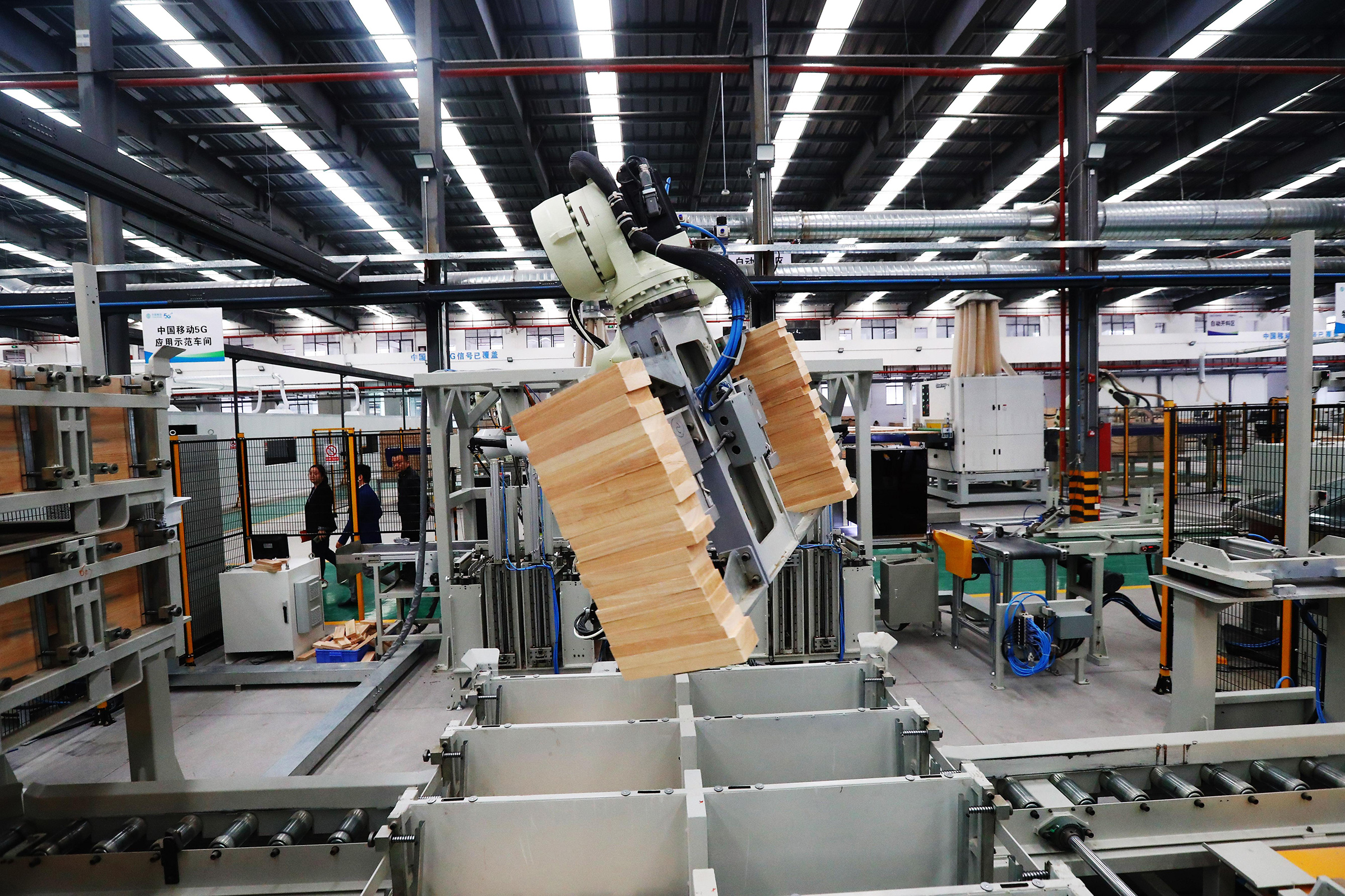
For many years now, China has been the world’s factory. Even in 2020, as other economies struggled with the effects of the pandemic, China’s manufacturing output was $3.854 trillion, up from the previous year, accounting for nearly a third of the global market.
But if you are still thinking of China’s factories as sweatshops, it’s probably time to change your perception. The Chinese economic recovery from its short-lived pandemic blip has been boosted by its world-beating adoption of artificial intelligence (AI). After overtaking the U.S. in 2014, China now has a significant lead over the rest of the world in AI patent applications. In academia, China recently surpassed the U.S. in the number of both AI research publications and journal citations. Commercial applications are flourishing: a new wave of automation and AI infusion is crashing across a swath of sectors, combining software, hardware and robotics.
As a society, we have experienced three distinct industrial revolutions: steam power, electricity and information technology. I believe AI is the engine fueling the fourth industrial revolution globally, digitizing and automating everywhere. China is at the forefront in manifesting this unprecedented change.
Chinese traditional industries are confronting rising labor costs thanks to a declining working population and slowing population growth. The answer is AI, which reduces operational costs, enhances efficiency and productivity-, and generates revenue growth.
For example, Guangzhou-based agricultural-technology company XAG, a Sinovation Ventures portfolio company, is sending drones, robots and sensors to rice, wheat and cotton fields, automating seeding, pesticide spraying, crop development and weather monitoring. XAG’s R150 autonomous vehicle, which sprays crops, has recently been deployed in the U.K. to be used on apples, strawberries and blackberries.
Some companies are rolling out robots in new and unexpected sectors. MegaRobo, a Beijing-based life-science automation company also backed by Sinovation Ventures, designs AI and robots to safely perform repetitive and precise laboratory work in universities, pharmaceutical companies and more, reducing to zero the infection risk to lab workers.
It’s not just startups; established market leaders are also leaning into AI. EP Equipment, a manufacturer of lithium-powered warehouse forklifts founded in Hangzhou 28 years ago, has with Sinovation Ventures’ backing launched autonomous models that are able to maneuver themselves in factories and on warehouse floors. Additionally Yutong Group, a leading bus manufacturer with over 50 years’ history, already has a driverless Mini Robobus on the streets of three cities in partnership with autonomous vehicle unicorn WeRide.
Where is all this headed? I can foresee a time when robots and AI will take over the manufacturing, design, delivery and even marketing of most goods—potentially reducing costs to a small increment over the cost of materials. Robots will become self-replicating, self-repairing and even partially self-designing. Houses and apartment buildings will be designed by AI and use prefabricated modules that robots put together like toy blocks. And just-in-time autonomous public transportation, from robo-buses to robo-scooters, will take us anywhere we want to go.
It will be years before these visions of the future enter the mainstream. But China is laying the groundwork right now, setting itself up to be a leader not only in how much it manufactures, but also in how intelligently it does it.
More Must-Reads from TIME
- Breaking Down the 2024 Election Calendar
- How Nayib Bukele’s ‘Iron Fist’ Has Transformed El Salvador
- What if Ultra-Processed Foods Aren’t as Bad as You Think?
- How Ukraine Beat Russia in the Battle of the Black Sea
- Long COVID Looks Different in Kids
- How Project 2025 Would Jeopardize Americans’ Health
- What a $129 Frying Pan Says About America’s Eating Habits
- The 32 Most Anticipated Books of Fall 2024
Contact us at letters@time.com